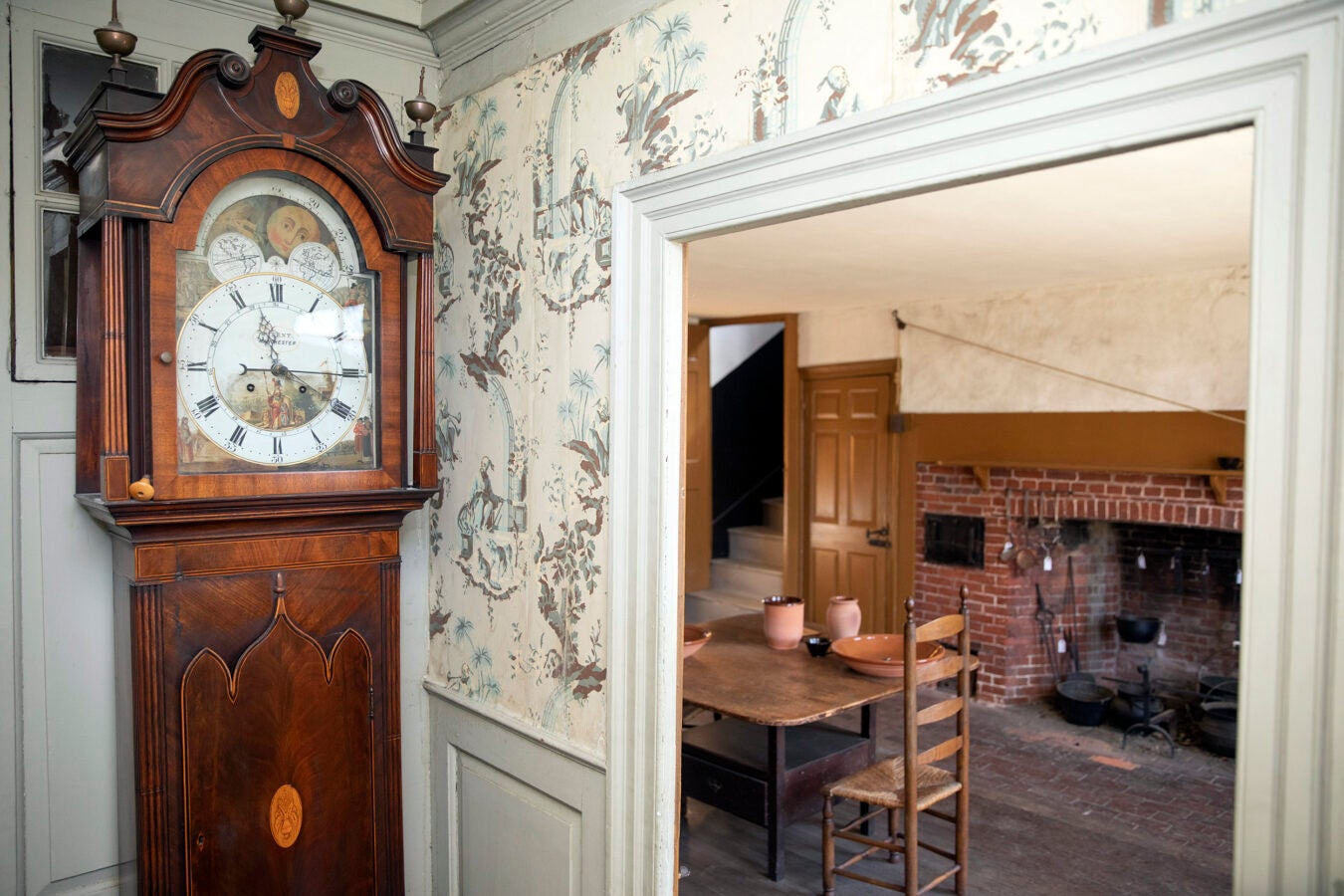Over the years, feminist legal expert Janet Halley — who held the Law School’s Royall chair appointment from 2006 to 2022, resigning when the post was permanently retired — organized upwards of 20 tours to the Medford museum for students, faculty, and alumni.
“Nothing you can read replaces being in the place where this all went down,” she said. “The museum has been just an incredible partner in building awareness of this legacy.”
The historic site once operated in the spirit of “colonial-revival nostalgia,” as Halley once wrote, but it was transformed in recent decades. An archaeological dig commissioned in the late 1990s unearthed one of Singleton’s favorite objects, a game piece fashioned from tiles. It was found near the Slave Quarters, in an area out of view from the main house. “It allows us to think about ways in which enslaved people tried to circumvent surveillance,” said Singleton, who soon will earn her Ph.D. in American culture from the University of Michigan.
Tiya Miles, the Michael Garvey Professor of History and Radcliffe Alumnae Professor, first took students to the site in early 2020 for her “Slavery and Public History” course. This spring, she helped orchestrate multiple visits by students in an introductory humanities course, co-taught with urban studies expert Bruno Carvalho, a professor of Romance languages and literatures and African and African American studies who currently serves as interim director of the Mahindra Humanities Center.
“Students are often struck by the intimacy of slavery,” said Miles, who advocated for formalizing Harvard’s partnership with the museum. “When Singleton points out the pallet where enslaved people slept, they realize that right across the hall or perhaps even in the same room those who owned the individuals would have been sleeping in their beds.”
Later in the semester, the humanities class set about creating a digital walking tour that connects the Law School and the property with maps, text, visuals, and audio. One student will revise the tour assets over the summer before the final version is submitted to Singleton, the museum’s sole full-time employee.

A view of the barebones kitchen, where enslaved workers prepared meals, from the opulence of the slaveholders’ dining room.
Also working with the museum is Aabid Allibhai, a Ph.D. candidate in the Harvard Kenneth C. Griffin Graduate School of Arts and Sciences studying African and African American studies, with a primary field in history. Allibhai is part of a research team put together by Singleton that is digging into the lives of those enslaved by the Royalls at sugar plantations in the Caribbean.
It’s imperative that the relationship is reciprocal, stressed Miles, who also serves as director of Harvard’s Charles Warren Center for Studies in American History. “When we descend upon a historic site — especially a small site with tiny staff — we are asking the people who run that site to help us to teach our students. We’re asking them to do a form of work. We have to reciprocate by working as well.”
For Miles’ students, the history lesson gets highly personal. As the class settled into the Royalls’ opulent bedroom — two steps from a stark storage area where some enslaved residents slept — Singleton was swept into a side conversation regarding the Royall family crest and its longtime ties with the Law School.
A sophomore shook his head. “That’s crazy,” he whispered. “Is that public knowledge?”
“Yes, it’s public knowledge,” replied Singleton, who recently was given a Warren Center fellowship as part of the new partnership. She directed him to the Legacy of Slavery report to learn more. Then she steered to another of the site’s former residents, a figure rising in esteem with a Law School courtyard, lecture series, and conference newly named in her honor.
Belinda Sutton, enslaved by the Royalls for some 50 years, filed a series of petitions with the Massachusetts General Court seeking a pension from the proceeds of Isaac Royall Jr.’s estate. In the first of these documents — dated February 1783, the year slavery was effectively abolished in Massachusetts — Sutton recalled being abducted from her homeland in Africa and enduring the Middle Passage. She also described laboring under the Royalls while being denied “one morsel of that immense wealth” she helped create.
“For me, ending on Belinda Sutton is really important,” Singleton told the students. Few documents exist from Black women in the 18th century, and Sutton cannily used the courts to leave behind her story. And, Singleton said, the pension was granted but never fully honored — a call for reparations still resonant today.
The Daily Gazette
Sign up for daily emails to get the latest Harvard news.
